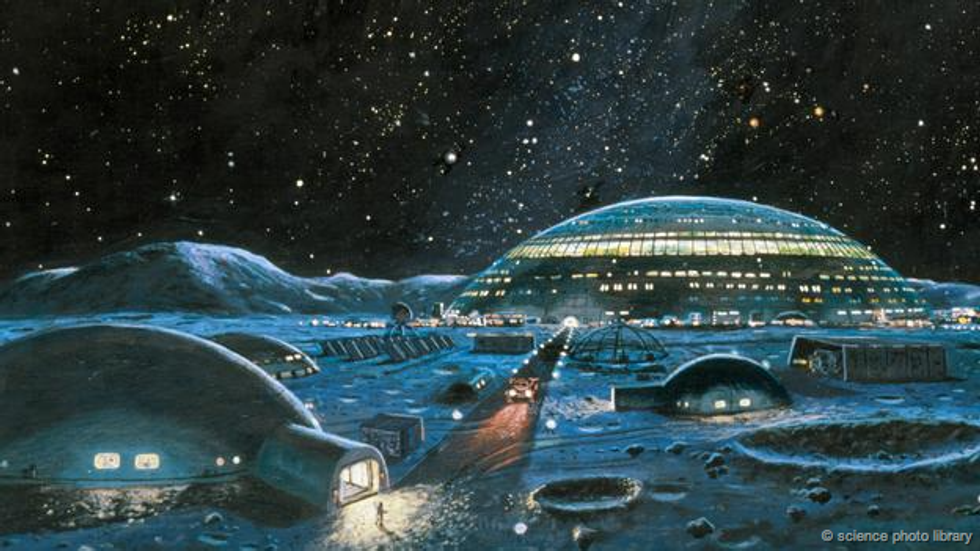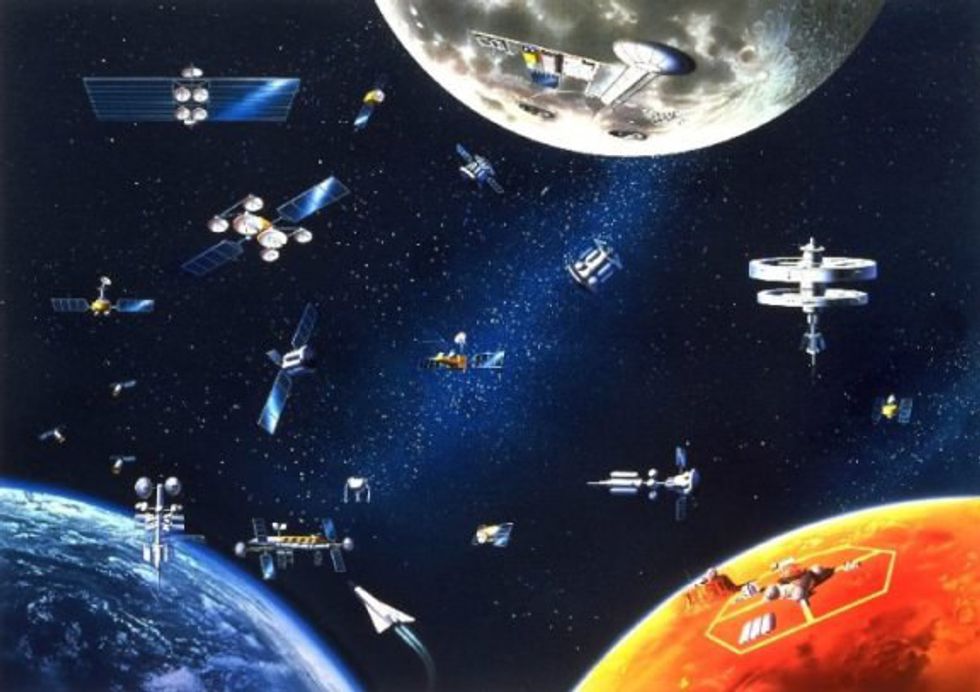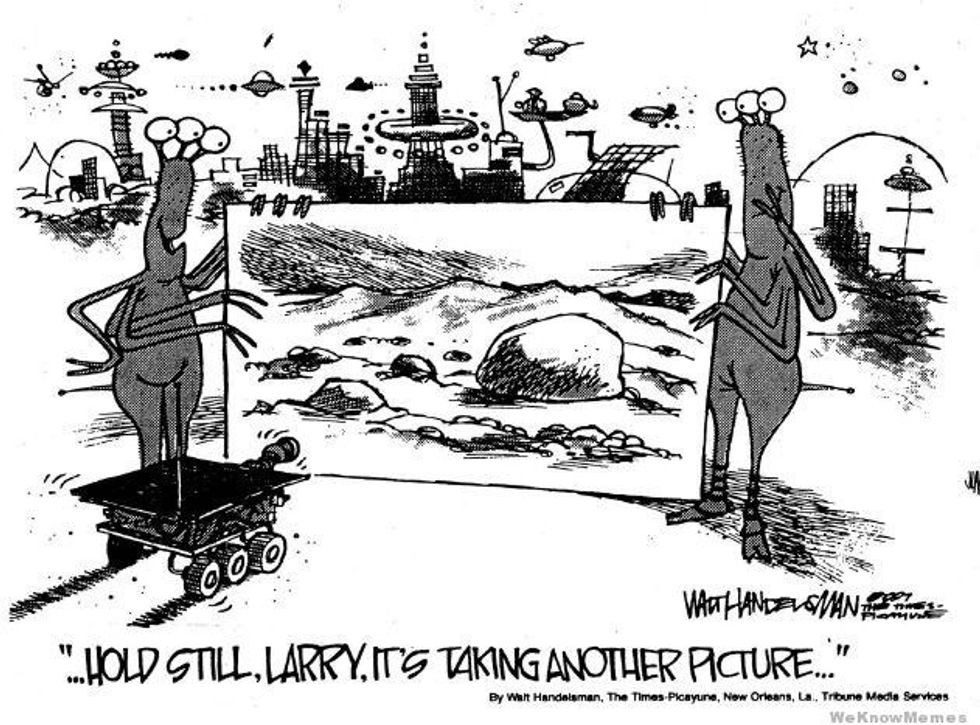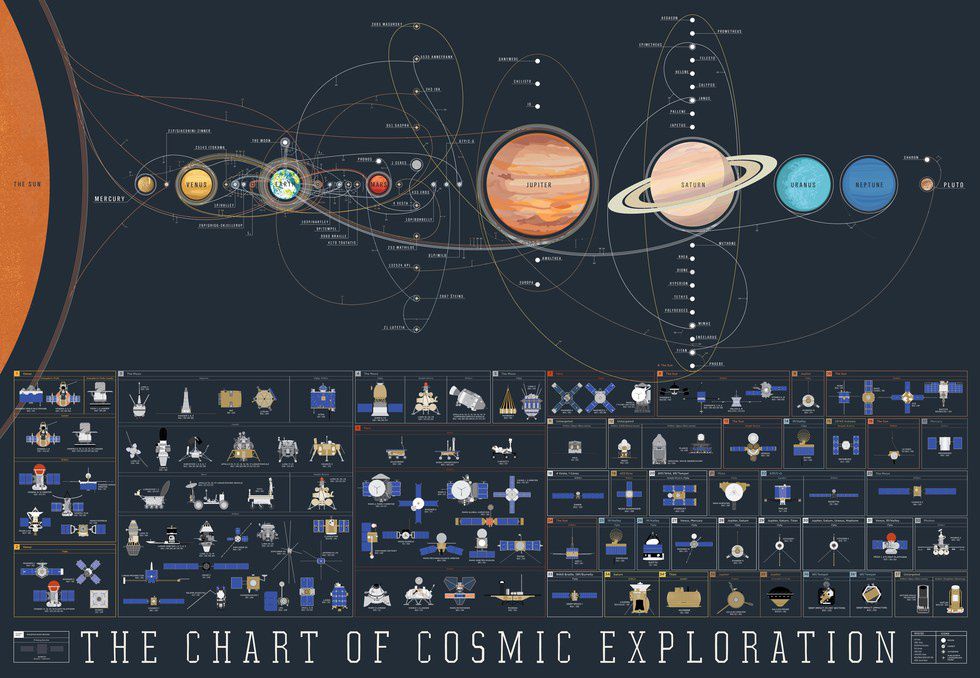At its core, space exploration is driven by intellectual curiosity. For centuries, individuals have viewed the twinkling lights in the sky in awe, sought answers about planetary motion, and wondered about the vast expanse of space. This process of observing and analyzing space and objects in space is known as astronomy. It actually may be one of the oldest natural sciences in recorded history. Before the invention of the telescope, civilizations such as the ancient Mesopotamians, Greeks, Egyptians, Indians, etc. used the naked eye to make observations and determinations about the makeup of space. From the earliest discoveries and conjectures about space, modern astronomers have allowed humanity to advance in our understanding of the Universe.
In our current, technological age, astronomers and other space scientists have better means to learn about space and our planet. Unlike past civilizations, scientists and members of the aerospace industry have been able to conduct physical explorations of celestial objects with satellites, automated probes, and even human spaceflight. The development of space infrastructure has enabled the creation of weather forecasting, global positioning systems (GPS), satellite televisions, methods of long distance communication, and other normalized services in developed societies. So, clearly space exploration has benefited more than just our human curiosity.
However, individuals have questioned the usefulness of modern space exploration projects for decades, especially because they require heavy funding from governments and private individuals and firms. As it stands, some of the most popular and recent space objectives have involved the commercialization of space, space colonization, and astrobiology. I intend to study the cost-benefit analyses of space exploration regarding these three specific topics.
The commercialization of space refers to the use of equipment sent into space for the provision of goods and services. Satellite radio technology and space tourism are a couple examples of such services with commercial value. Space has proven to be lucrative for many private firms, and it seems that more firms are regularly looking for economic returns from space. World View is one company that has taken advantage of the growing commercial uses of space with space tourism. At the end of this year, for a flat rate of $75,000, up to six passengers will have the opportunity to board a large, pressurized capsule and float 100,000 feet above Earth’s surface. Notable CEO of SpaceX and Tesla Motors, Elon Musk, has expressed his intention to reduce the risk of human extinction by making life multi planetary; he wants to create a colony on Mars. He is not alone. Boeing CEO Dennis Muilenburg has plans for the company to compete with Musk in creating technology for humans to venture beyond just the Moon.
While such technology goals may sound exciting, some individuals argue that these intentions are unnecessary and a waste of human resources. Gerarg DeGroot made this argument in 2009, calling the National Aeronautics and Space Administration (NASA) a “machine for spending money.” He went on to accuse NASA as using the intention to reduce global warming as a means to gain government support for new space projects. He then criticized former President Bush for focusing on the space race with China at the expense of funding that could go to other government programs.
However, DeGroot might make a better argument by citing other challenges of space commercialization, such as the lack of access to insurance and the potential for rising costs. Few financial institutions are capable of providing space-based enterprises with the financial insurance that matches the scale of initiatives in space. Because governments are not offsetting the financial risks of these initiatives, insurance is vital for private firms to minimize potential damages. Researcher Arthur L. Levine identified another potential risk back in 1985; commercialization may increase the cost of space technology until it is inaccessible for developing countries. If a country like America has spacecraft launches that are too expensive, developing nations will target already subsidized launches from other nations, which will affect relations.
Still, NASA astronaut James F. Reilly would likely praise NASA for its role in such endeavors. Reilly explains that NASA’s budget has actually decreased over the years; it decreased from $32 billion in 1995 to $25 billion, and subsequently to $18.5 billion. Dr Luke Sollitt, assistant professor of Physics at The Citadel, has a similar argument. He explains that the commercial suborbital industry has brought costs for space flight from millions of dollars down to around $100,000. As well, one could potentially cite job creation as a benefit of space commercialization. As new technological projects and goals are created, the demand for astronauts and different types of engineers and scientists may largely increase. With new and creative methods to make space travel easier for astronauts already in the works, opportunities for people seeking relevant careers will likely be on the rise.
Along with the commercialization of space, space colonization has also become a more realistic pursuit for researchers. By colonization, I include human habitation of other celestial objects and even resource extractions on these objects, such as the Moon and planet Mars. Back in 2006, NASA publicized its plans to build a lunar base by 2024; this year NASA announced that this estimate has been reduced to 2022. Author and executive director of The Planetary Society, Louis Friedman, believes that humans will eventually terraform Mars. He says that he sees it as “part of human evolution to eventually adapt to living on Mars and then to make it better.” In his opinion, advances in “nanotechnology, space sailing, robotics, bio-molecular engineering, and artificial intelligence” will allow humans to “extend our presence throughout the universe” so that we will not need to extend our bodies beyond a planet like Mars.
However, given our unfortunate ability to misuse and disregard our own planet’s resources as humans, there are potential ethical concerns about colonization of celestial objects. Some wonder what the detriments of resource extractions on other planets may be. Outside of physical impacts, there are also potential social impacts; how would humans adapt to life in completely different environments than that of our own planet?
Another potential issue with this idea of space settlements is the ambiguity and difficulty in establishing property rights on natural celestial objects. The Outer Space Treaty was created for this very reason back in 1967; as of 2012, all countries with current stakes in space have ratified the treaty. As a framework for international space law, the treaty basically forbids the placement or use of weapons of mass destruction into space or the claim of celestial resources by governments. In 2015, President Barack Obama signed the U.S. Commercial Space Launch Competitiveness Act, which gives US citizens the right to own and mine resources from asteroids.
Arguably the most popular and mysterious aspect of space exploration is in regard to extraterrestrial life in the Universe. For several decades, individuals in different areas of study have questioned the existence of life on other celestial objects in space. In a study known as “astrobiology,” scientists use a combination of physics, chemistry, astronomy, geology, and biology to study life in the Universe. Although the general consensus among scientists about the creation of the Solar System defers to the ideas of the Nebular Hypothesis, there has been no agreed understanding about how life came to be on Earth before outside of evolution; the theory of evolution does not specify exactly how life formed on Earth at the beginning.
For this reason, the search for extraterrestrial life is not limited to the search for sentient life; life on other worlds could hypothetically be as simple as microscopic organisms like bacteria or more advanced than humans. As well, such ambiguity poses potential dangers for humans. Individuals like notable physicist Stephen Hawking have warned about searching for alien life and responding to signals from far off stars. He expressed how civilizations reading our signals and messages could have advanced billions of years ahead of humans; in this case, they will be “vastly more powerful and may not see us as any more valuable than we see bacteria.” In spite of these warnings, nations have still placed much time and resources into this search. If humans do discover life on other planets, moons, etc., subsequent expectations are still unclear. It does not appear as though we, humans, actually have a singular intention with this exploration, outside of satisfying curiosity and answering questions that have been asked for centuries.
Regardless of your views on space exploration, it appears that humanity is prepared to continue searching for answers in the Universe. However, with this upcoming election, the future of US space exploration is not so certain. I support the continued exploration of space and celestial objects because I believe that the pursuit of human knowledge should not be limited to Earth. The very fact that we have the ability to explore what lies beyond our own planet should be enough of a reason for us to keep expanding our understanding. While we have and will run into heavy costs and challenges in space, even with forces beyond our control, I do not believe that they should prevent continued progress with space programs.
Space exploration is not just adventurous and mysterious. It is not just economically beneficial either. It gives humans the chance to better understand how our own planet works, so that we can even anticipate future events in or outside of our planet. It further allows us to discover easier ways to live at or beyond our current means. I believe that scientists and researchers will only create new opportunities for humanity’s continued growth by creating new questions and discovering new answers using space exploration.


























